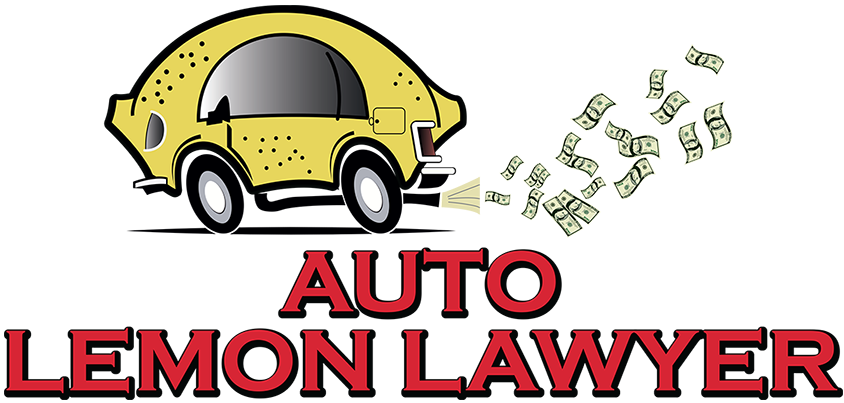If you’ve purchased a vehicle with modifications or aftermarket parts, you may wonder how these alterations impact your rights under lemon law. While each case is unique, working with an experienced Louisiana auto lemon lawyer can help protect your rights.
Let’s review some key considerations regarding vehicle modifications, aftermarket components, and lemon law claims.
Understanding Lemon Laws and Vehicle Warranties

Lemon laws provide important protections for consumers who purchase vehicles with serious defects that cannot be repaired after a reasonable number of attempts. These laws vary by state but generally require manufacturers to either replace the defective vehicle or provide the owner with a refund if certain criteria are met.
In addition to lemon law protections, new vehicles also come with manufacturer warranties. A warranty essentially guarantees that the vehicle will meet certain standards of quality and performance for a specific period of time or mileage. If defects arise during the warranty period, the manufacturer must make the necessary repairs at no cost to the owner.
It’s important to understand the specifics of your vehicle’s warranty and the lemon laws in your state. An auto lemon law attorney can review the details of your case and explain how these legal protections apply to your situation. Legal counsel is especially important if your vehicle has modifications or aftermarket parts.
Impact of Modifications on Lemon Law Claims
In general, vehicle modifications and the use of aftermarket parts do not automatically void your lemon law rights. However, these alterations can sometimes complicate matters. Manufacturers may try to argue that non-factory parts or changes made by the owner are responsible for the vehicle’s defects rather than any inherent flaws in the vehicle itself.
For a successful lemon law claim, you must demonstrate that the vehicle’s problems result from a manufacturer defect and that they substantially impact the use, value, or safety of the vehicle. If the issues can be directly tied to aftermarket parts or modifications, holding the manufacturer liable may be more challenging.
This is where having an experienced lemon law attorney is beneficial. A skilled lawyer can investigate the cause of the vehicle’s defects and gather evidence to support your claim. They can also navigate the complex interplay between warranties, lemon laws, and vehicle alterations.
Types of Modifications and Their Lemon Law Implications

The type and extent of modifications made to a vehicle can affect lemon law claims in different ways. Here are some common examples:
Aesthetic Modifications
Cosmetic changes, such as custom paint jobs, body kits, or interior enhancements, generally have little impact on lemon law claims. If these modifications do not alter the vehicle’s key systems or contribute to its defects, they are unlikely to jeopardize your rights.
However, disclosing any aesthetic modifications is still wise if you pursue a lemon law case. Full transparency allows your attorney to provide the most accurate guidance and avoid any surprises that can hamper your claim.
Performance Upgrades
Performance-enhancing modifications, like aftermarket exhaust systems, turbochargers, or engine tuning, can be more problematic from a lemon law standpoint. Manufacturers may contend that these upgrades placed additional stress on the vehicle’s components, leading to failures.
If your vehicle has undergone significant performance modifications, an auto lemon law lawyer can assess whether these changes might have contributed to the defects in question. Your lawyer may need to consult with mechanics or automotive experts to determine the root cause of the problems and build a strong case on your behalf.
Aftermarket Safety Features
Installing aftermarket safety components, such as backup cameras, blind spot monitors, or collision avoidance systems, can be a double-edged sword in lemon law situations. On one hand, these features are designed to enhance vehicle safety. If they malfunction due to a manufacturer defect, it can bolster your lemon law claim.
On the other hand, if the aftermarket safety parts are faulty or improperly installed, the manufacturer may argue that they are not liable for any issues that arise. Your lemon law attorney must demonstrate that the vehicle’s problems are unrelated to the aftermarket safety features.
Warranty Considerations for Modified Vehicles
In addition to lemon laws, it’s important to consider how modifications might affect your vehicle’s warranty coverage. Many manufacturers state that using non-factory parts or unauthorized alterations can void the warranty, either in whole or in part.
However, the Magnuson-Moss Warranty Act offers some consumer protections in this regard. Under this federal law, a manufacturer cannot automatically void your warranty simply because you used an aftermarket part or had someone other than the dealer perform repairs. The manufacturer must demonstrate that the aftermarket part or service caused the need for repairs.
If you have made modifications to your vehicle and are experiencing problems, an auto lemon law attorney can handle the warranty process. An attorney can communicate with the manufacturer on your behalf and work to ensure that your warranty rights are respected, regardless of any alterations to the vehicle.
Pursuing a Lemon Law Claim for a Modified Vehicle
If you believe your modified vehicle qualifies for lemon law protection, the first step is to consult with an experienced auto lemon law lawyer. During your initial consultation, you’ll discuss the specific issues you’ve encountered, the repair attempts made, and any modifications or aftermarket parts on the vehicle.
Your attorney will review your case and advise you on the best course of action. They may request documentation, such as repair receipts, warranty information, and records of your communications with the manufacturer or dealer. If your lawyer determines that you have a viable lemon law claim, they will guide you through filing a complaint and negotiating with the manufacturer.
Sometimes, the manufacturer may agree to settle the claim out of court. This can involve replacing your vehicle with a new one or refunding the purchase price. However, if the manufacturer is unwilling to offer a fair settlement, your attorney may recommend litigation.
Your lemon law lawyer will handle all communications with the manufacturer and their legal team throughout the legal process. They will gather evidence, consult with experts if necessary, and build a compelling case on your behalf. A skilled attorney in your corner can level the playing field and improve your chances of a favorable outcome.
Seek Legal Guidance
If you believe your modified vehicle qualifies for lemon law protection, don’t hesitate to seek legal guidance. With the right lemon law attorney in your corner, you can hold manufacturers accountable and confidently get back on the road.

Over the past 31+ years, I have been devoted to standing up for consumers, tackling intricate class action consumer litigations, handling complex multi-district cases, and recovering millions of dollars for my Lemon Law clients. Being admitted in District Courts in Louisiana, Texas, California, Michigan, Florida, and Indiana, my practice has led me to represent clients all over the United States in my Lemon Law cases. Regardless of your location, my firm is committed to offering the highest level of professional support, especially in Lemon Law.

